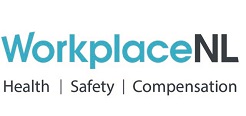Social Event
Social Event – Rally in the Alley with McCarthy’s Party
Workshops
Preliminary Program
Final Final Program July 19, 2019
Program at a glance
|
Time |
Monday August 12 |
Tuesday August 13 |
Wednesday August 14 |
Thursday August 15 |
|
|
7:30 |
|
Registration |
|
|
|
|
8:00 |
Registration |
Registration |
Registration |
||
|
8:30 |
Full Day Workshop – Salon F Design Communication Tools: Stakeholders, Personas, and User Journey Maps
|
Opening remarks
Keynote – “Design Thinking to Disrupt Traditional Thinking” - Catherine Courage, VP, Google (Salon A) |
Announcements
Keynote – “Ships, Helicopters and Automobiles: Transportation Vehicles as the Working Environment” – Dr. Wayne Albert, Dean of the Faculty of Kinesiology, University of New Brunswick (Salon A) |
Announcements
Keynote - “Human Technology Teaming; exploring the relationship” - Dr. Heather Neyedli, Faculty Member, Dalhousie University (Salon A) |
|
|
9:00 |
|
||||
|
9:30 |
|
||||
|
10:00 |
Break
|
Exhibitor presentations (Salon A) |
Break & Exhibitor Showcase (Salons B/C/D)
|
Break
|
|
|
10:15 |
Workshop continued |
Break and Exhibitor Showcase (Salons B/C/D)
|
|||
|
10:30 |
Session 10: IEA 2021 Triennial World Congress: Opportunities for Canada on the World Stage of Ergonomics – Salon E
Session 11: Office Ergonomics – sponsored by Contour Designs – Salon F Office Ergo, in the Extremes The Expansion of the Rapid Office Strain Assessment (ROSA): An Office Ergonomics Tool A Productivity Analysis of 6 Popular Ergonomic Mouse Designs Effect of a Spine Decompression Chair Design Compared to a Control on Spine Height and Posture During Prolonged Sitting. Session 12: Rehabilitation and Paramedics – Salon G Exploring Personal, Sport-Related, and Rehabilitation-Related Risk Factors of Rehabilitation Over Adherence Among Injured Athletes Case Studies of Recovering Strength and Reach Following Massive Rotator Cuff Tear Repair Relationship Between Functional Movement Screen performance and Self-Reported Discomfort Among Experienced Paramedics. Evaluating an Intervention to Reduce Neonate Whole Body Vibration Exposures During Ambulance Transport |
Session 19: Fatigue Risk Management – Panel Discussion of Workplace Strategies – Salon E
Session 20: Considerations for Comfort – Salon G
Evaluating the Efficacy of Sharps-Proof Clothing for Reducing Biomechanical Exposure in Municipal Waste Collectors
The Neck-Shoulder Comfort Tradeoff: Effects of Large Touchscreen Monitor Tilt Angles on Standing Tasks.
Blue Eyes: A Look at Blue-Light Emissions and the Potential Hazard to Vision and Sleep
Exploring the Impact of Critical Incident Exposure on Psychological Fatigue as a Risk Factor for Musculoskeletal Injury During Firefighting Tasks
|
|
||
|
10:45 |
Session 1: Collaborations in Ergonomics (in French) – Salon A A Look at the Interprofessional Collaboration in Architectural Design: The Case of the Reception Desks at the Future Centre Intégré de Cancérologie du CHU de Québec Université Laval The Contribution of Work Analysis in the Training Needs Analysis Process: New Opportunities in Ergonomics Session 2: Military and Seating Considerations – Salon E Aircraft Cockpit Accommodation: A Pilot Study Comparing Whole-Body Vibration Exposures and Psychomotor Vigilance Task Performance across Two Classes of Truck Seats Musculoskeletal Hazards and Injuries in Canadian Aquaculture: A Strategy for Hazard Identification and Risk Reduction Session 3: MSDs and Lifting – Salon G Designing for Client Lifts in Healthcare – A Guideline for Care, Safety and Consistency in Alberta Health Services A Multi-Professional Approach to Investigating Musculoskeletal Injuries Among Medical Radiation Technologists: A Case Study for New Equipment Study of Musculoskeletal Disorders Among Insurance Office Employees |
||||
|
11:45 |
AGM/Lunch
(Salon A)
|
||||
|
12:00 |
Lunch (for all workshop participants)
|
Lunch
(Salon A) |
Lunch Presentation of Awards, Closing remarks
(Salon A) |
||
|
13:00 |
Full Day Workshop cont’d – Salon F Design Communication Tools: Stakeholders, Personas, and User Journey Maps
|
Session 13: Using the MSD Prevention Guidelines for Ontario: An Employer’s Success – Salon E
Session 14: Return on Investment and Risk Assessment – Salon F Healthcare Facility Mock-up Guidelines: Optimizing Return on Investment (ROI) for Quality and Patient Safety Human Behaviour Prediction for Risk Assessment in Ergonomics: Two Case Examples Development of an Integrated System and Human Modelling Approach to Quantify Biomechanical Load and Care Quality in Nursing work
Session 15: Office Ergonomics: Unpacking the 2017 CSA Z412 Standard – Salon G
|
|
||
|
13:15 |
|
||||
|
13:30 |
Session 4: Design and Operations (in French) – Salon A Integrating Ergonomics into a Design Project at the CHU de Québec: The Case of the New Hospital Complex Cleaning and Disinfection of Food Processing Machinery – The Rigour of an Unknown Job The Concept of Enabling Spaces: A Promising Theoretical Avenue in Ergonomics Session 5: Muscle Analysis & Fatigue – Salon E Isometric Wrist Flexor and Extensor Muscle Fatigue Similarly Impairs Hand Tracking Performance Using a Haptic Wrist Robot Surface EMG Analysis of Posture and Muscle Load for Medical Sonography Tasks - A Pilot Study Session 6: Effects of Sitting – Salon G Monitoring Calf Circumference During Prolonged Sitting Followed by Walking Is Spinal Stiffness Affected by Prolonged Sitting? Comparison of Whole-Body Vibration Exposures When Operating a Bus with an Active, Passive and Static Suspension Bus Seat |
|
|
||
|
13:45 |
|||||
|
Technical Tours – Lobby of the Delta
|
|||||
|
14:30 |
Break
|
Break and Exhibitor Showcase (Salons B/C/D)
|
Break and Exhibitor Showcase |
|
|
|
14:45 |
Workshops continue
|
Exhibitor Prizes (Salons B/C/D)
|
|
||
|
15:00 |
Session 7: MSD Prevention and Postures (in French) – Salon A Assigning a Tutor in the Workplace to Support MSD Prevention Optimal Duration of Standing Periods at the Office According to Perception Physiological and Biomechanical Comparison Between Different Sit-to-Stand Postures to Sitting and Standing Postures and Short Walks Session 8: General Biomechanics – Salon E Using Principal Components to Test Reach Patterns in 3 Groups Biomechanical Demands of Automobile Tire Changing Finding, Providing and Implementing “Ergonomic Techniques” for Outdoor Workers Session 9: Analysis & Validation of Physical and Ergonomic Techniques – Salon G Comparison of Video-Based and Traditional Physical Demands Description Methods Evaluating the Prospective Benefits of Physical Demands Description (PDD) Data Created from Job Simulations Effects of Three VO2 Max Estimation Methods on the Results of Three Heart Rate-Based Energy Consumption Estimation Models
|
Session 16: Ergonomic Awareness in the Workplace – Salon E How Does Employer Support Effect an Ergonomics Practitioner’s Awareness of the Relationship Between Ergonomics and Psychosocial Hazard Control? Techniques for Improving Ergonomics Awareness in Workers In the 4th Industrial Revolution, Ergonomics Cannot be an Afterthought!!! The Application of HFE and Ambulance Design Standards in Canada’s EMS System Session 17: ACE National: Encouraging Member Retention and Engagement – A Discussion – Salon F
Session 18: Systematic Supports for Health & Safety – Salon G Workplace Practices and Policies to Support Workers with Depression. Relationship Between Psychosocial Health Status and Simulated Patient-Care Scenario Performance Among Experienced Paramedics. Health & Safety Climate in a University Setting Workplace and System-Based Interventions on Return-To-Work and Recovery for Musculoskeletal and Mental Health Conditions. Findings from Two Systematic Reviews |
|||
|
16:15 |
|
|
|||
|
16:30 |
|
|
|
|
|
|
|
|
|
|
|
|
|
17:30 |
Early Registration |
Exhibitor Showcase time 5:30-7:30pm Salon B/C/D |
|
|
|
|
18:00 |
50th anniversary celebration Salon B/C/D – Sponsored by ergoCentric |
|
Social: Rally in the Ally Meet in Salon A |
|
|
Technical Tours (Choose One)

1. Centre for Marine Simulation

In operation since 1994, the Centre for Marine Simulation (CMS) is an industrial arm of the Fisheries and Marine Institute of Memorial University (MI). Operating under MI's School of Maritime Studies, CMS combines its unique North Atlantic location, world-class simulation technology, and industry-driven expertise to solve the toughest simulation problems for its clients.
The Centre is located in St. John's, Newfoundland and Labrador, Canada, the capital city of Newfoundland and Labrador and the forefront of Canada's ocean technology industry. The city boasts one of the most sophisticated and comprehensive concentrations of ocean technology organizations anywhere in Canada.
As a centre of excellence, CMS responds to a variety of requests ranging from ship manoeuvring and procedural trials, performance examination and improvements, and customized training to operational efficiency reviews, marine equipment testing, and port design evaluation.
Its clients are globally based and come from a variety of maritime sectors: commercial shipping, oil and gas, port operations, civil engineering, environmental, marine policy and regulation and more.
We have an edge of our own.
High fidelity, state-of-the-art technology, 360° visuals, and motion systems that provide our clients with unprecedented realism.
Our objective is simple:
Improve operational efficiency by enhancing a mariner’s knowledge, skill, and confidence.
2. Offshore Safety and Survival Centre – Focus on Fire Fighting



The Offshore Safety & Survival Centre, a division of Memorial University’s Marine Institute offers a comprehensive range of safety and emergency response training courses to the marine transportation, offshore petroleum, fishing and industrial sectors. The OSSC is uniquely positioned to carry-out high quality, relevant research in the area of emergency response, survival and rescue. The OSSC research team has expanded significantly in recent years and in collaboration of the OSSC instructional team the group is in an extraordinary position to conduct research that will better inform decision-makers, designers, regulators, operators and trainers.
During your visit to the facility, you will be treated to an overview of the various training and research activities taking place at the OSSC and will have an opportunity to visit our Survival Tank and Firefighting Training ground. This Survival Tank is equipped with an environmental theater which allows researchers to simulate real world conditions including wind, rain, lightning, thunder, sea spray and sea state. The Fire Training ground is equipped with multiple mock training props (including a 2 level ship structure and two level Oil Rig Structure). With additional capability to conduct pressurized firefighting, confined space training and fire extinguisher training the OSSC is an excellent place to feel the heat of real world emergencies in the marine and offshore sectors. If time allows, you will have the opportunity to fly on our full motion helicopter flight simulator travelling to the Hibernia offshore oil installation.
We look forward to welcoming you to the OSSC soon.



